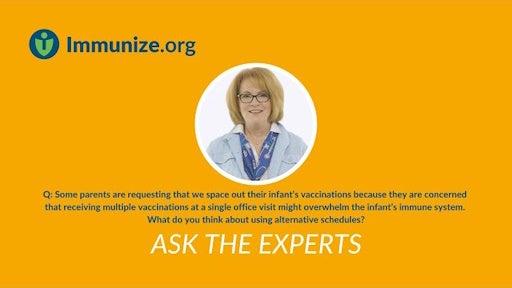- Vaccine Safety
Some parents are requesting that we space out their infant’s vaccinations because they are concerned that receiving multiple vaccinations at a single office visit might overwhelm the infant’s immune system. What do you think about using alternative schedules?
Vaccine recommendations are determined after extensive studies in large clinical trials. They include studies on how vaccine recipients respond to multiple vaccines given simultaneously. The overall aim is to provide early protection for infants and children against vaccine-preventable diseases that could endanger their health and life.
No scientific evidence exists to support that delaying vaccinations or separating them into individual antigens is beneficial for children. Rather, this practice prolongs susceptibility to disease, which could result in a greater likelihood of the child becoming sick with a serious or life-threatening disease. There could also be added expense (e.g., multiple office visits), additional time off from work for parents, and increased likelihood that the child will fail to get all necessary vaccinations.
